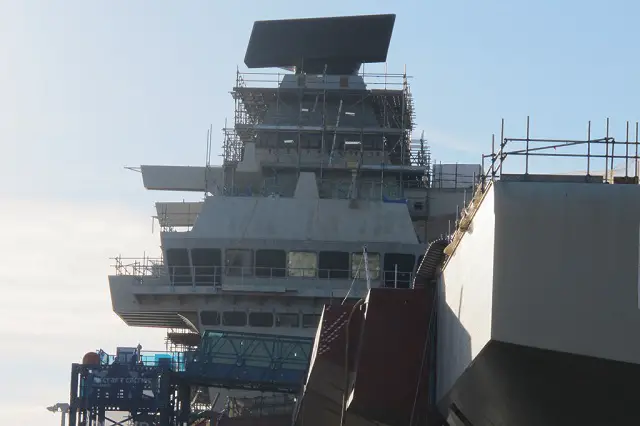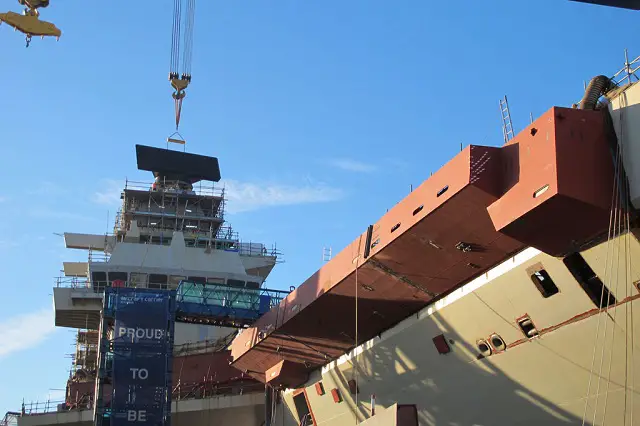The
Royal Navy’s future flagship now stands 56 metres (183ft) tall
– higher than Nelson’s Column – after the enormous
Goliath crane lifted the 8.4-tonne long-range radar into place on top
of the carrier’s forward island. The Thales SMART-L radar safely
arrived in Rosyth with its support, the mast cap, from Hengelo in the
eastern Netherlands back in September. |
Since
then feverish work has been going on around Queen Elizabeth to complete
her hull (finished earlier this month [NOV] with the addition of her
ski ramp). With the addition of the mast cap and black slab –
officially an antenna, despite its size (32m2 or 344ft2) – all
of the ship’s main structure blocks are now in place. The radar,
which provides a three dimensional, long-range picture not just of the
skies around Queen Elizabeth but also the waters, sits 27 metres (88ft)
above the flight deck, 50 metres (164ft) above the sea. And that’s
still not the highest point on Queen Elizabeth. When the communications
pole mast is fitted next year it will be 70 metres (230ft) from tip
to keel – which is almost as long as a River-class patrol ship.
As for the radar, it can track up to 1,000 contacts up to a range of
400km (250 miles) from the ship.
The SMART-L is a 3D multibeam radar designed to provide long-range air
& surface surveillance and target designation. Operating in L-band,
SMART-L provides a very long-range coverage (400 km radius) as well
as 70° of elevation. State-of-the-art technology, combined with
refined signal processing, SMART-L guarantees excellent performance,
especially against stealthy targets in a littoral environment. SMART-L's
high sensitivity allows for the early detection and tracking of very
small aircraft and missiles.
SMART-L is operational on the Netherlands' and German air defence frigates,
the Korean Landing Platform Dock and is under contract for the Danish
Navy's Patrol Ships. Its derivative, S1850M, is fitted on the Royal
Navy's Type 45 vessels and the French and Italian Horizon class destroyers.
|





















